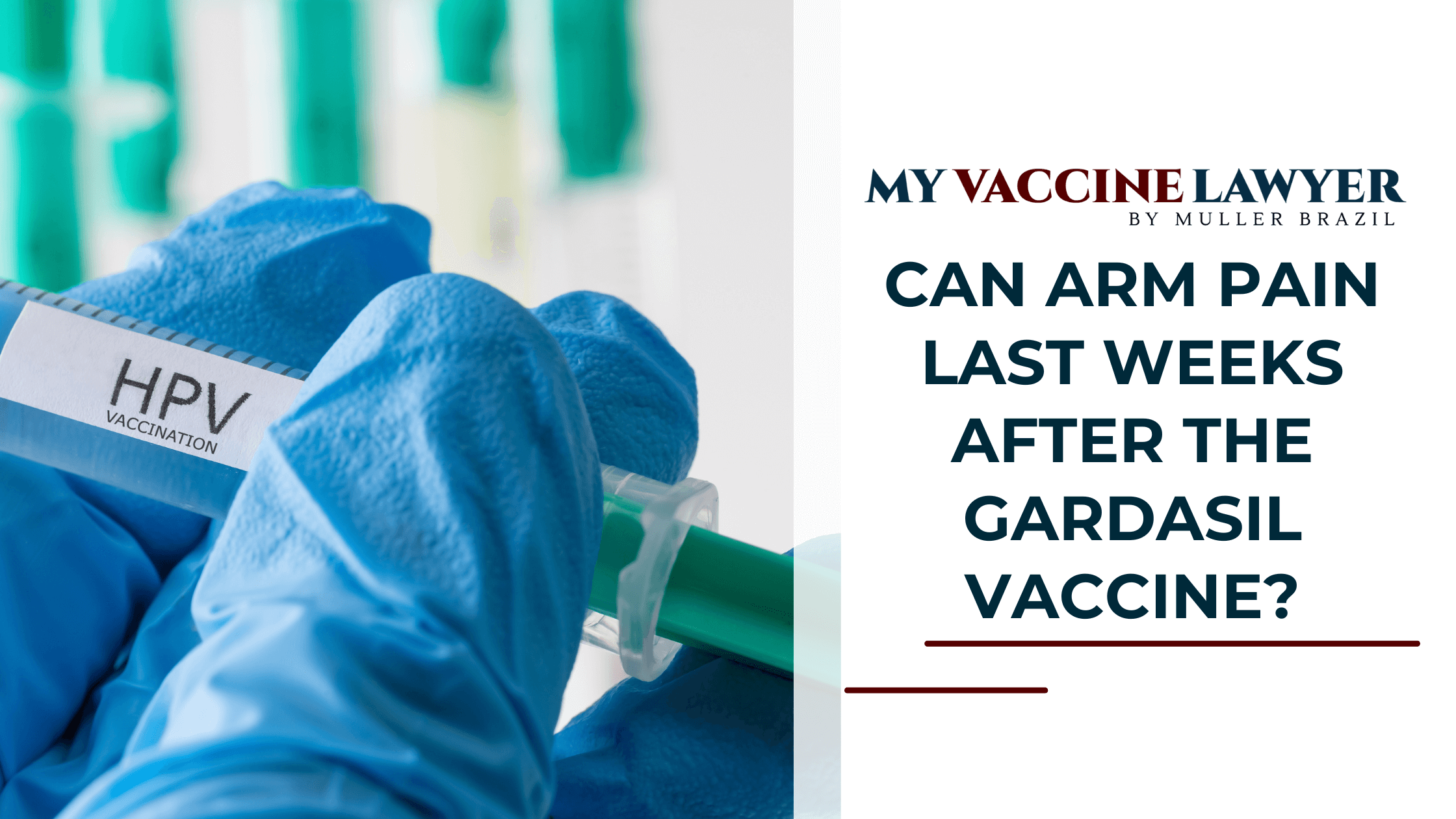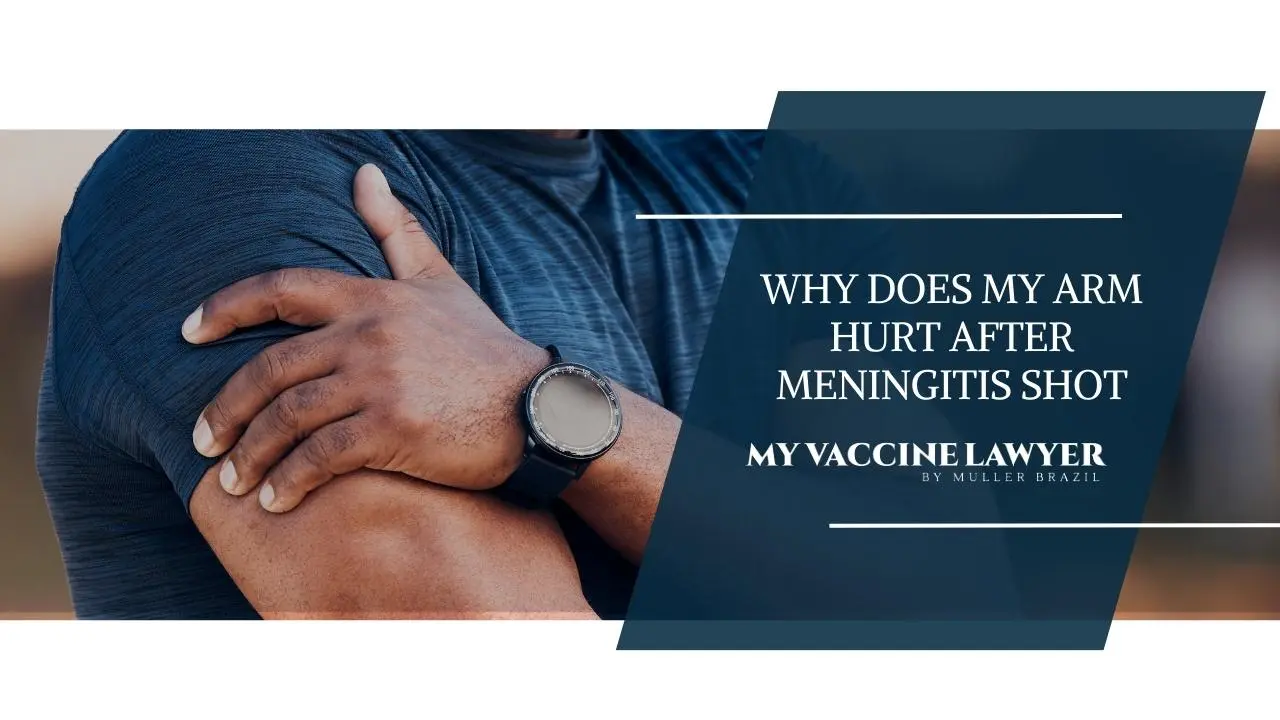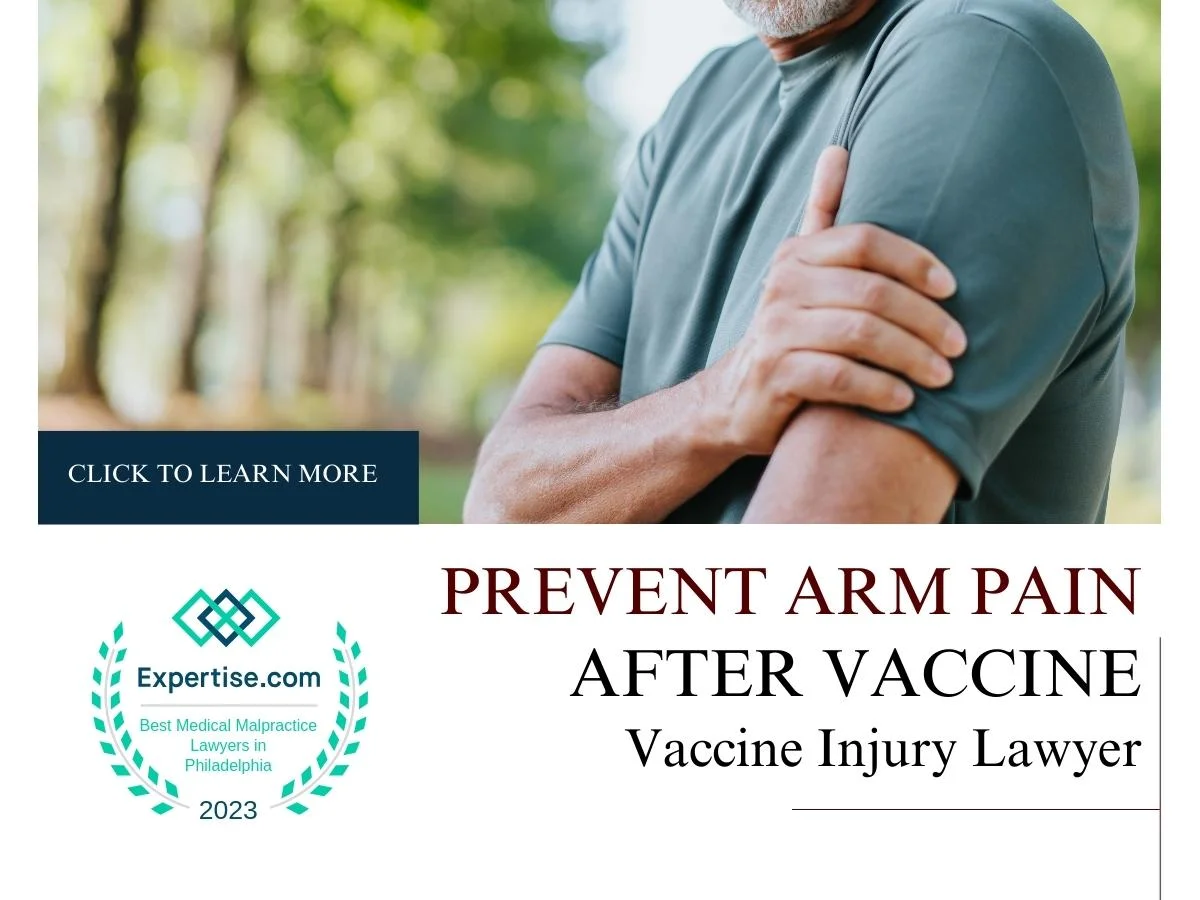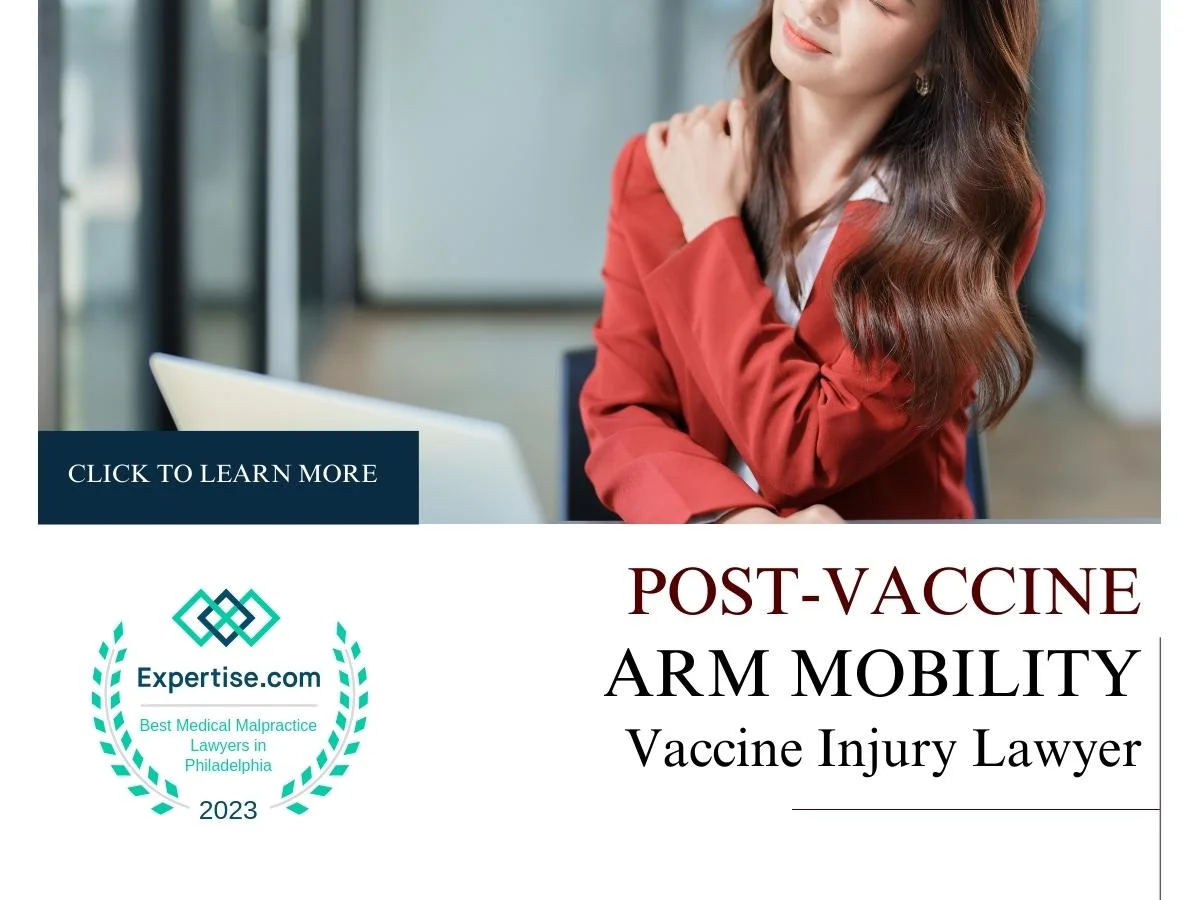Can Arm Pain Last Weeks After the Gardasil Vaccine?
Arm pain after the Gardasil shot is usually mild and short-lived, but if it persists for weeks, it could be a sign of SIRVA or another...
4 min read
Vaccine Injury Law Resources / SIRVA / Unable to Move Arm After Vaccine? Learn About SIRVA
 Max Muller
:
Jan 17, 2023 7:46:28 AM
Max Muller
:
Jan 17, 2023 7:46:28 AM
If you can't move your arm after getting a vaccine, you might have a condition called Shoulder Injury Related to Vaccine Administration (SIRVA). This can happen if the vaccine is given incorrectly, causing pain and stiffness. To treat it, you might need rest, physical therapy, medication, or even surgery. To avoid this, make sure the person giving the vaccine knows the proper technique and report any problems to the Vaccine Adverse Event Reporting System (VAERS). If your symptoms are severe, get medical help right away. You might also want to talk to a vaccine injury lawyer to see if you can get compensation.
One such side effect that some individuals have reported is an inability to move their arms after receiving the vaccine. This blog will explore the causes of this side effect, how to manage it, and when to seek medical attention.
A vaccine injection can cause a shoulder injury known as "shoulder injury related to vaccine administration" (SIRVA). SIRVA may occur when the needle used to administer the vaccine is accidentally inserted into the shoulder joint or surrounding tissue rather than the muscle.
The vaccine injection can cause damage to the tendons, ligaments, and bursa (a fluid-filled sac that acts as a cushion) in the shoulder, resulting in pain, stiffness, and limited range of motion.
SIRVA can occur with any vaccine given by injection but is most commonly reported with the flu shot. To prevent SIRVA, it is important for healthcare providers to locate the muscle for vaccine injection properly and to avoid injecting the vaccine into the shoulder joint or surrounding tissue.
Treatment for the symptoms of shoulder injury related to vaccine administration (SIRVA) and/or being unable to move your arm after a vaccine depends on the severity of the injury. Some common treatment options include:
It's important to follow the instructions and advice of your healthcare provider to get the best outcomes.
Prevention measures and steps that can be taken to prevent arm immobility from a vaccine injection (SIRVA) include:
If you experience severe or unusual symptoms such as pain, swelling, or inability to move your arm after receiving a vaccine, it is important to seek medical attention as soon as possible. Your healthcare provider can diagnose the cause of the symptoms and recommend the appropriate treatment. Early diagnosis and treatment are key to preventing further complications.
It is also important to report any adverse events after receiving a vaccine to the VAERS so they can be recorded and studied. This helps ensure that vaccines are safe and effective for everyone.
If you believe that your arm immobility or other condition may be related to a vaccine, you must contact an experienced vaccine injury lawyer for legal advice as soon as possible. A qualified and knowledgeable vaccine attorney can evaluate your case and advise you on your options. Your vaccine injury lawyer can help ensure you get the compensation you deserve if a vaccine causes your condition.
Your arm may be stiff after a vaccine due to inflammation or an injury caused by the needle. This is known as a shoulder injury related to vaccine administration (SIRVA).
Yes, you may be able to get compensation if your arm immobility is related to a vaccine. It is important to contact an experienced vaccine injury lawyer as soon as possible so they can evaluate your case and advise you on the best course of action.
Yes, a vaccine can damage muscles in the arm. It is important to report any symptoms you experience after vaccination to your healthcare provider and the Vaccine Adverse Event Reporting System (VAERS).
Signs of a shoulder injury related to vaccine administration (SIRVA) include pain, swelling, reduced range of motion, and difficulty moving the arm. If you experience any of these symptoms after receiving a vaccine, it is important to seek medical attention as soon as possible.
A vaccine can cause frozen shoulder syndrome (adhesive capsulitis). This condition causes the shoulder joint to become stiff and painful due to inflammation and scarring of the shoulder capsule. If you experience any symptoms of a frozen shoulder after receiving a vaccine, it is important to seek medical attention as soon as possible.
If a vaccine needle hits a nerve, it can cause pain and other symptoms, such as tingling or numbness. After receiving a vaccine, it is important to seek medical attention if you experience any of these symptoms. Your healthcare provider can diagnose the cause of your symptoms and recommend the appropriate treatment.
In summary, arm immobility after a vaccine can be a sign of shoulder injury related to vaccine administration (SIRVA). If you believe your shoulder immobility or other condition may be related to a vaccine, you must contact an experienced vaccine injury lawyer for legal advice as soon as possible. After receiving a vaccine, it is important to seek medical attention immediately if you experience any pain, soreness, swelling, or difficulty moving your arm. Reporting adverse events to the Vaccine Adverse Event Reporting System (VAERS) is also important to ensure that vaccines are safe and effective.
Mr. Muller currently devotes the majority of his law practice to aggressively fighting for the victims of unsafe drug and medical device injuries, as well as vaccine injuries and vaccine reactions involving the flu shot, TDaP/DTaP vaccine, and more. He has handled hundreds of SIRVA injury cases (shoulder injury related to vaccine administration), especially those involving bursitis, tendonitis, frozen shoulder, and rotator cuff tears. Mr. Muller also handles cases where vaccines caused serious nerve injuries such as Guillain-Barre Syndrome. Mr. Muller has recovered millions of dollars in compensation for his clients in the Vaccine Injury Compensation Program.

Arm pain after the Gardasil shot is usually mild and short-lived, but if it persists for weeks, it could be a sign of SIRVA or another...

This is a must-read for anyone experiencing discomfort after receiving a meningitis vaccine. Arm pain, redness, and swelling are common but typically...

To prevent arm soreness after receiving a vaccine, make sure to hydrate well and get good rest before your appointment. Avoid alcohol and caffeine as...
